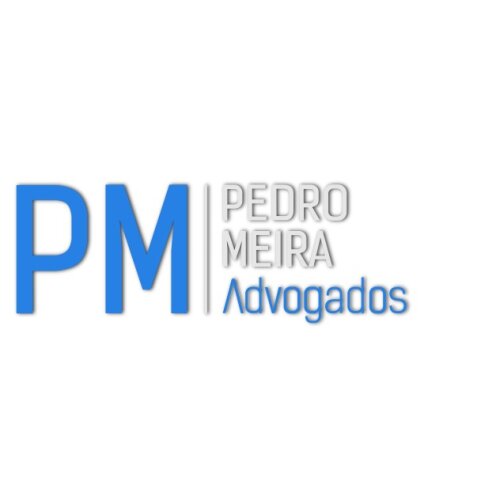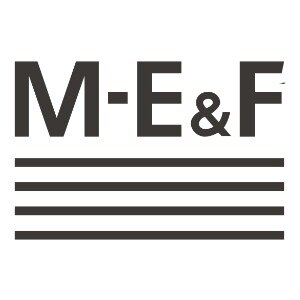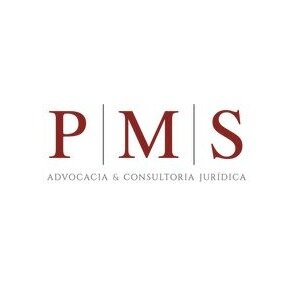Best Tax Increment Financing Lawyers in Porto
Share your needs with us, get contacted by law firms.
Free. Takes 2 min.
List of the best lawyers in Porto, Portugal
About Tax Increment Financing Law in Porto, Portugal
Tax Increment Financing, or TIF, is a public financing method utilized as a subsidy for redevelopment, infrastructure, and other community-improvement projects in Porto, Portugal. It enables the city to use the anticipated increases in property tax revenues resulting from the increase in property values due to certain developments to finance these projects. TIF is a popular tool for economic development intended to stimulate private investment, increase property values, and foster job creation.
Why You May Need a Lawyer
Engaging a lawyer may be necessary for various situations related to Tax Increment Financing in Porto. These include understanding the intricate details of the TIF agreement, negotiating terms with local governments, ensuring compliance with all applicable laws, and addressing disputes or challenges that may arise throughout the development process. Legal assistance may also be crucial in navigating the complex bureaucratic and legal landscape to maximize the benefits of TIF.
Local Laws Overview
Porto's approach towards Tax Increment Financing is governed by both national and local statutes. Key aspects include eligibility criteria for projects, how TIF districts are designated, and the allocation of incremental tax revenues. It's essential for entities seeking to use TIF to understand the regulatory framework, including requirements for public hearings, project submissions, and impact assessments, ensuring that development plans align with sustainable urban planning goals and legal stipulations.
Frequently Asked Questions
What is Tax Increment Financing?
Tax Increment Financing (TIF) is a financial tool used to encourage development in underdeveloped or blighted areas by using future tax revenues to pay for the current improvements needed to increase property values in the designated area.
How is TIF implemented in Porto?
In Porto, TIF is implemented by creating designated districts where anticipated property tax revenue increases are earmarked to finance development-related projects within the district.
Who benefits from TIF?
The primary beneficiaries of TIF include developers, who can fund their projects, and the community, which can enjoy increased property values, improved infrastructure, and potential new jobs.
Are there risks associated with TIF?
Yes, risks include uncertainties regarding the projected increase in property value, potential shortfall in expected tax increments, and the diversion of taxes from schools and other services. Legal oversight can mitigate these risks.
How long does a TIF district last?
The duration of a TIF district can vary but is commonly set for an average period of 20 years, contingent on the completion of repayment and project objectives.
Do TIF projects require public approval?
Yes, TIF projects generally require public hearings to involve community input, assess potential impacts, and align with broader urban development strategies.
Can residential projects be funded through TIF?
Yes, residential projects, particularly those aimed at affordable housing or mixed-use developments, can benefit from TIF funding if they meet the eligibility criteria.
How can a lawyer help with TIF?
A lawyer can aid in drafting, reviewing, and negotiating TIF agreements, ensuring regulatory compliance, and representing clients in disputes or legal proceedings related to TIF.
Are schools affected by TIF?
Yes, since TIF diverts property taxes to fund development, there can be implications on funding available for schools, which necessitates careful planning and consideration.
What happens if a TIF project fails to increase property values as expected?
If a TIF project fails to generate the projected tax increments, it may result in financial challenges to repay bonds or other finance instruments; thus, proper estimations and risk assessments are crucial.
Additional Resources
For those seeking more information or guidance, the following resources can be invaluable: the Porto Chamber of Commerce, local government urban planning departments, the Directorate-General for Energy and Geology (DGEG) for environmental assessments, and legal advocacy groups specializing in urban development law.
Next Steps
If you need legal assistance in Tax Increment Financing, consider reaching out to law firms in Porto specializing in real estate or urban development law. Schedule consultations to discuss your TIF project, understand your obligations and rights, and ensure that your project complies with local legislation. Engaging with a lawyer early in the process can help in mitigating risks and securing the most favorable terms for your initiative.
Lawzana helps you find the best lawyers and law firms in Porto through a curated and pre-screened list of qualified legal professionals. Our platform offers rankings and detailed profiles of attorneys and law firms, allowing you to compare based on practice areas, including Tax Increment Financing, experience, and client feedback.
Each profile includes a description of the firm's areas of practice, client reviews, team members and partners, year of establishment, spoken languages, office locations, contact information, social media presence, and any published articles or resources. Most firms on our platform speak English and are experienced in both local and international legal matters.
Get a quote from top-rated law firms in Porto, Portugal — quickly, securely, and without unnecessary hassle.
Disclaimer:
The information provided on this page is for general informational purposes only and does not constitute legal advice. While we strive to ensure the accuracy and relevance of the content, legal information may change over time, and interpretations of the law can vary. You should always consult with a qualified legal professional for advice specific to your situation.
We disclaim all liability for actions taken or not taken based on the content of this page. If you believe any information is incorrect or outdated, please contact us, and we will review and update it where appropriate.

















